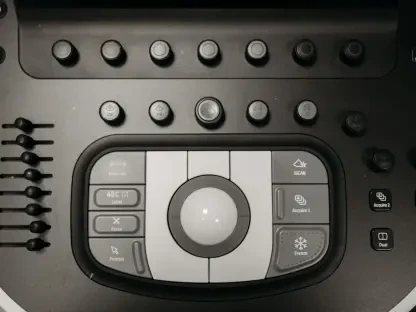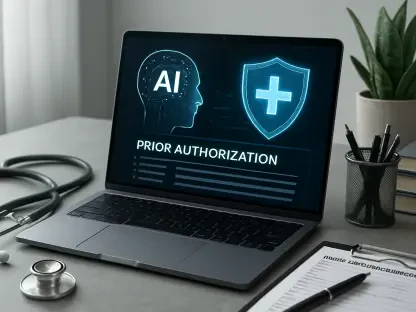In recent years, the use of audit technologies in Medicare Advantage (MA) plans has taken on growing importance as the program expands to cover a larger share of America’s seniors. Audit technologies have become central to ensuring that health plans deliver accurate claims, essential for controlling healthcare costs while maintaining high standards of patient care. This article delves into the current trends in audit technology adoption within the MA landscape, offering expert opinions and forecasting future developments that could shape the healthcare industry.
Current Trends and Adoption of Medicare Advantage Audit Technologies
Growing Integration and Usage Statistics
Recent data indicates a sharp rise in the adoption of audit technologies within Medicare Advantage plans. This increase is driven partly by the Centers for Medicare and Medicaid Services’ (CMS) efforts to enhance the accuracy of claims submitted by MA insurers. In response to historical criticisms of inflated diagnosis codes by some plans, CMS has intensified its scrutiny, leveraging advanced technology to better manage and audit claims. Such steps are fundamental, given the estimated $84 billion in additional Medicare spending attributed to MA enrollees this year.
Medical record review technologies are integral tools in this process. Their use is bound to grow as CMS overhauls its approach, aiming to audit all eligible MA contracts every year by increasing its coders from approximately 40 to 2,000. This significant workforce expansion underscores the trend toward comprehensive technological deployment in auditing practices, following a clear trajectory of higher technology integration mandates.
Real-world Applications and Case Studies
The practical applications of such technologies can be seen across several insurance providers, who are ramping up their capabilities to meet tighter compliance requirements. Notable examples include large insurers like UnitedHealth, CVS, and Humana, which have adjusted their operational procedures to align with CMS’s heightened audit expectations. Case studies reveal that these companies have adopted new data analytics platforms and enhanced their artificial intelligence (AI) tools to streamline audit processes.
These implementations not only enhance the accuracy of audits but also reinforce each plan’s commitment to reducing waste and abuse. By actively leveraging technology, insurers aim to maintain transparency and adherence to Medicare’s billing standards, ultimately aiming for more responsible expenditure management and improved service delivery to policyholders.
Insights from Industry Experts
The evolving landscape of audit technologies in MA plans has garnered significant attention from both healthcare and technology industry experts. Thought leaders underscore audit technologies’ role as crucial components in transforming Medicare’s audit landscape. They highlight how these tools can address fraudulent billing, overpayments, and resource misallocation issues that have plagued the program for years.
Moreover, experts foresee the technologies’ profound impact on the quality of care provided to Medicare beneficiaries. By ensuring the precision of diagnostic and billing practices, advanced audit systems help maintain safety net standards while fostering public trust. These insights emphasize the industry’s focus on addressing historical challenges through technology-led reforms.
Future Implications of Audit Technologies in Medicare Advantage
Looking ahead, the expectations for audit technologies are optimistic regarding further advancements and their implications for Medicare Advantage plans. These tools are anticipated to evolve, becoming even more sophisticated and user-friendly. Technological advancements promise to streamline audit processes and enhance the quality of care by ensuring that reimbursements match the services provided.
However, the adoption of advanced audit technologies may pose challenges. Some experts caution against over-reliance on automation, which could potentially overlook the nuances of individual patient cases. Navigating this balance will be crucial, as stakeholders aim to weigh the benefits of tech-driven efficiencies against the necessity for human oversight. Despite these challenges, there is substantial potential for these technologies to impact the broader healthcare sector positively.
Conclusion and Call to Action
The significance of audit technologies in Medicare Advantage is highlighted through increased regulatory scrutiny and the demand for enhanced plan accountability. These technologies are central to refining the program’s accuracy and fiscal sustainability. As stakeholders witness the tangible benefits of auditing innovations, there is a growing consensus on the need to invest further in these technologies as part of strategic planning.
Reflecting on this trend, stakeholders are encouraged to foster continuous advancements in audit technologies. Future investigations should focus on refining these systems and enhancing their integration within all MA plans. This strategic emphasis will ensure that Medicare Advantage remains a robust and fiscally sound program, upholding both financial integrity and patient care quality.









